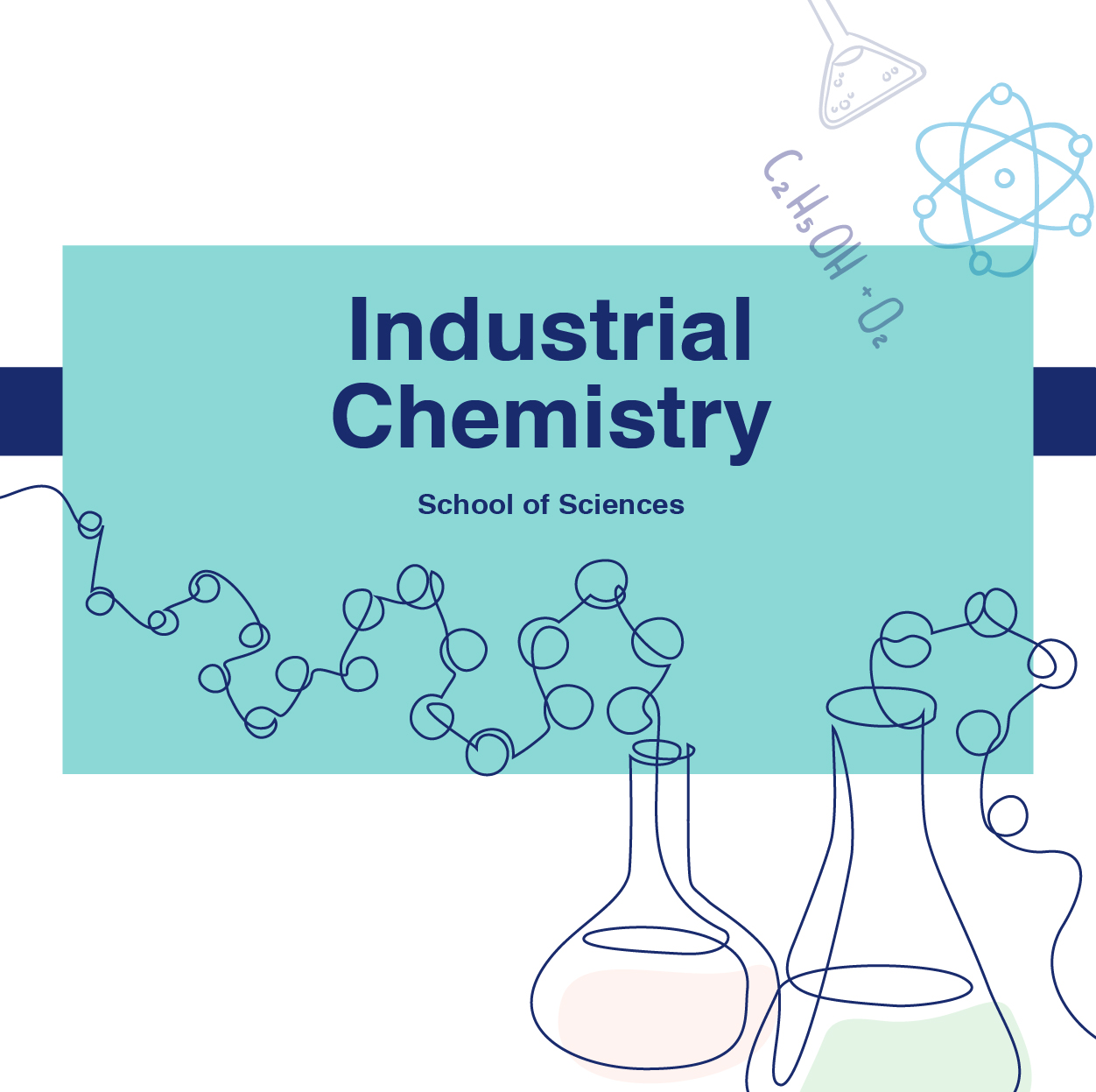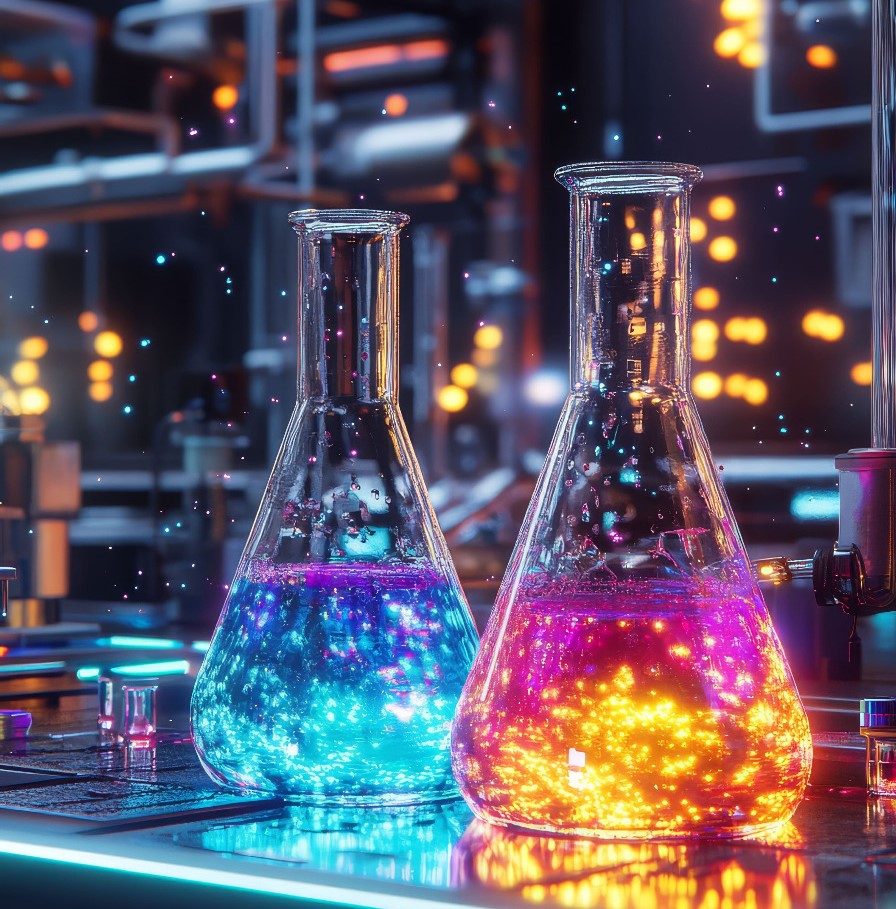
Industrial Chemistry
About the Program:
In this program, students will have the opportunity to study and apply chemistry in the production of materials and products. The program aims to equip students with the knowledge and skills necessary to analyze, design, and improve chemical processes across various industries, study chemical materials and reactions, control processes, and enhance efficiency and quality.
Mission of the Program:
The Industrial Chemistry program mission is to offer specialized education in the fields of materials industry and chemical technology and to focus on developing practical and theoretical skills for students in chemical analysis, process design, quality control, and environmental preservation. In addition, the program aims at providing training and practical application opportunities to enhance students' capabilities and prepare them to tackle challenges in the industrial chemistry sector.

